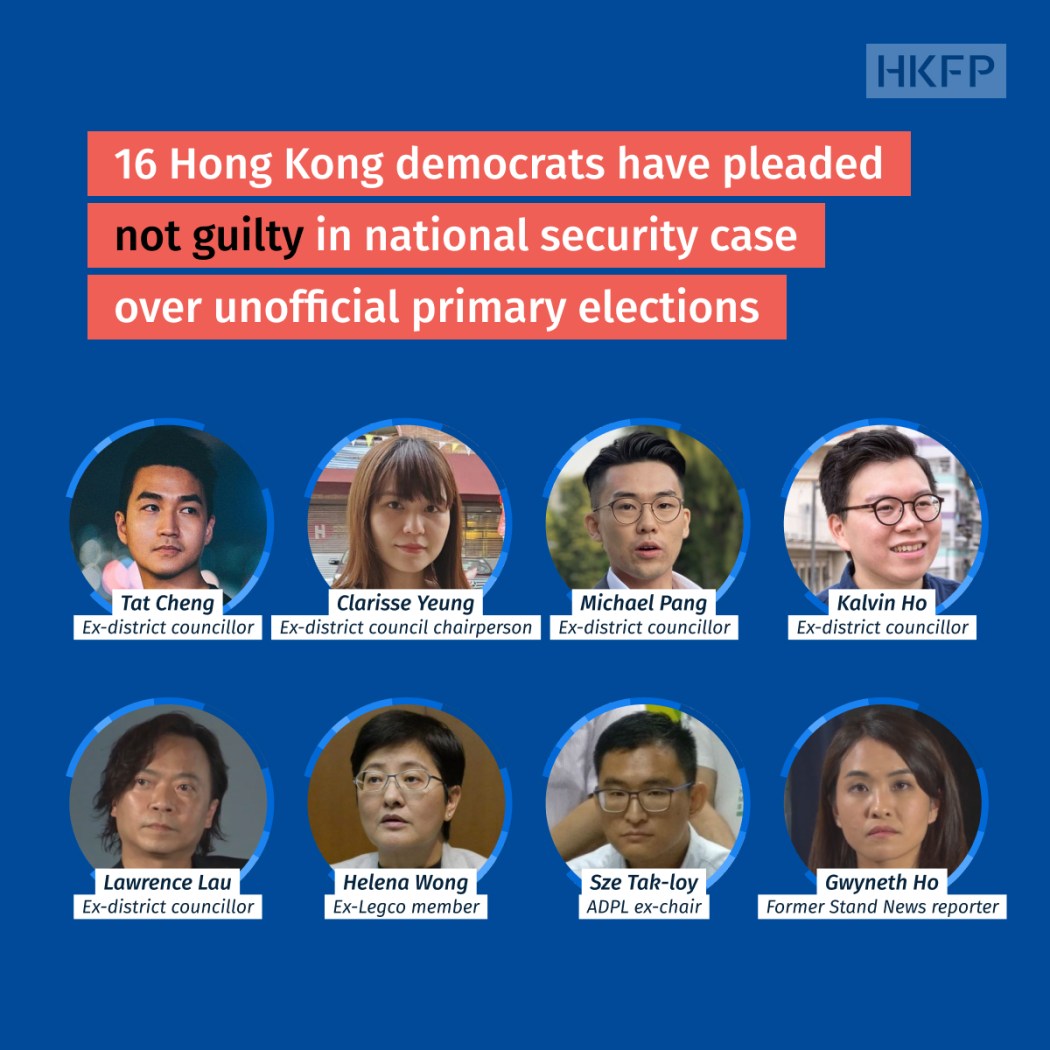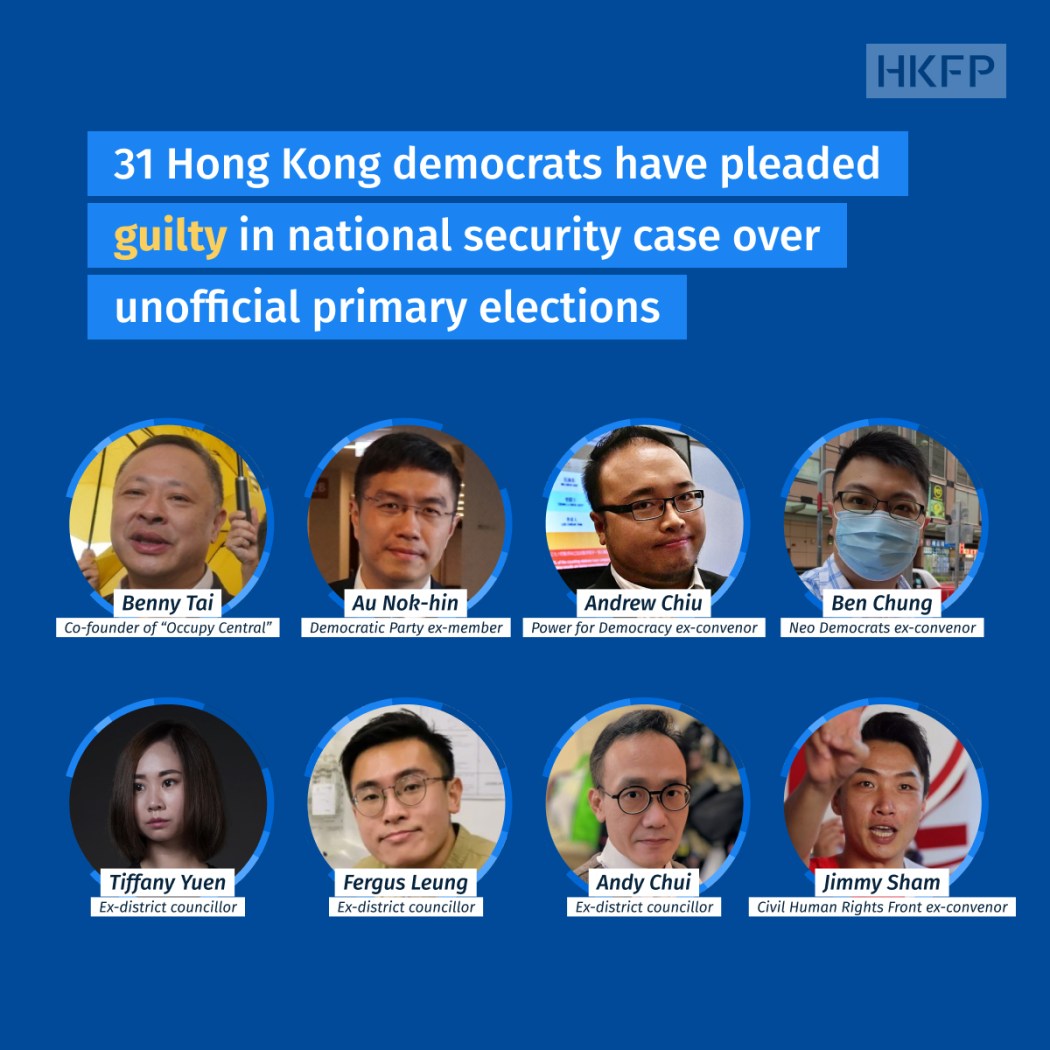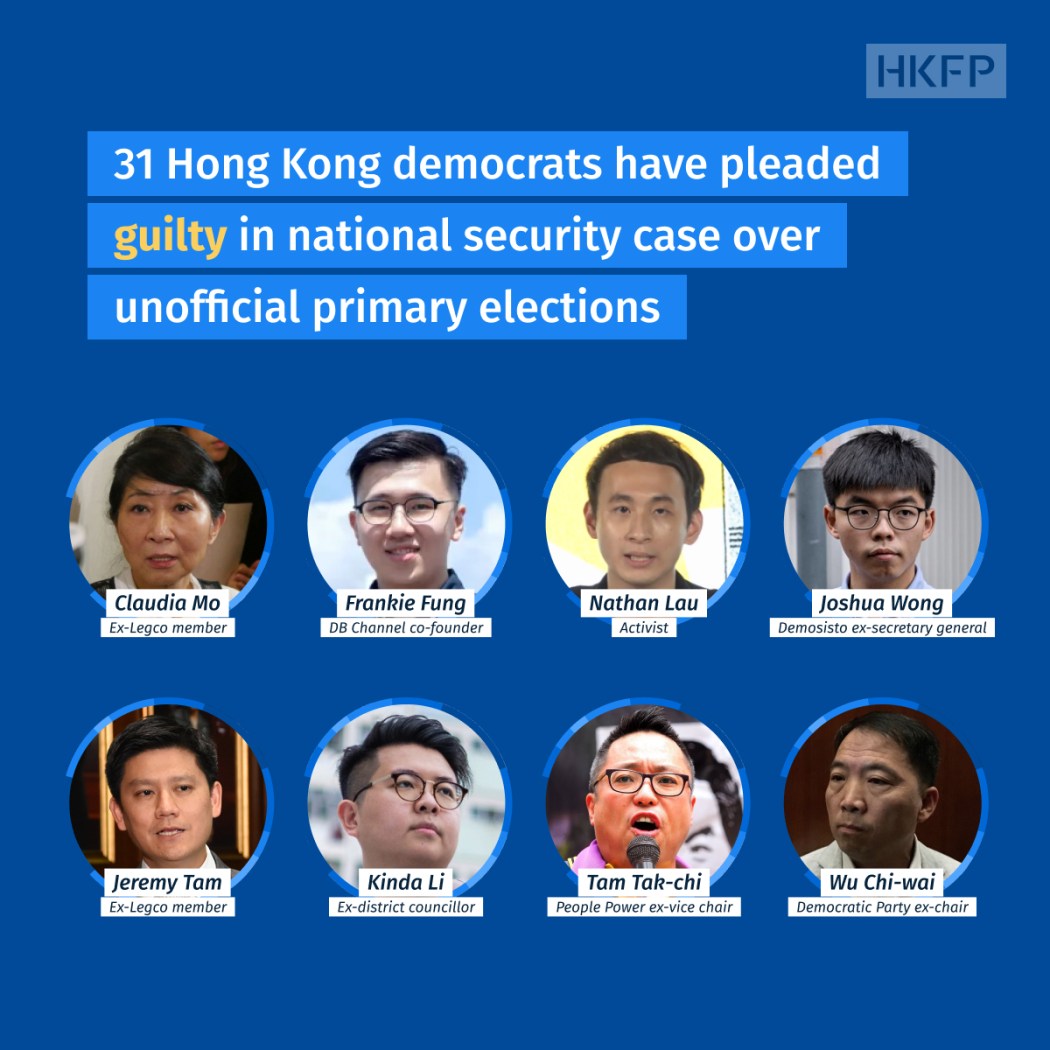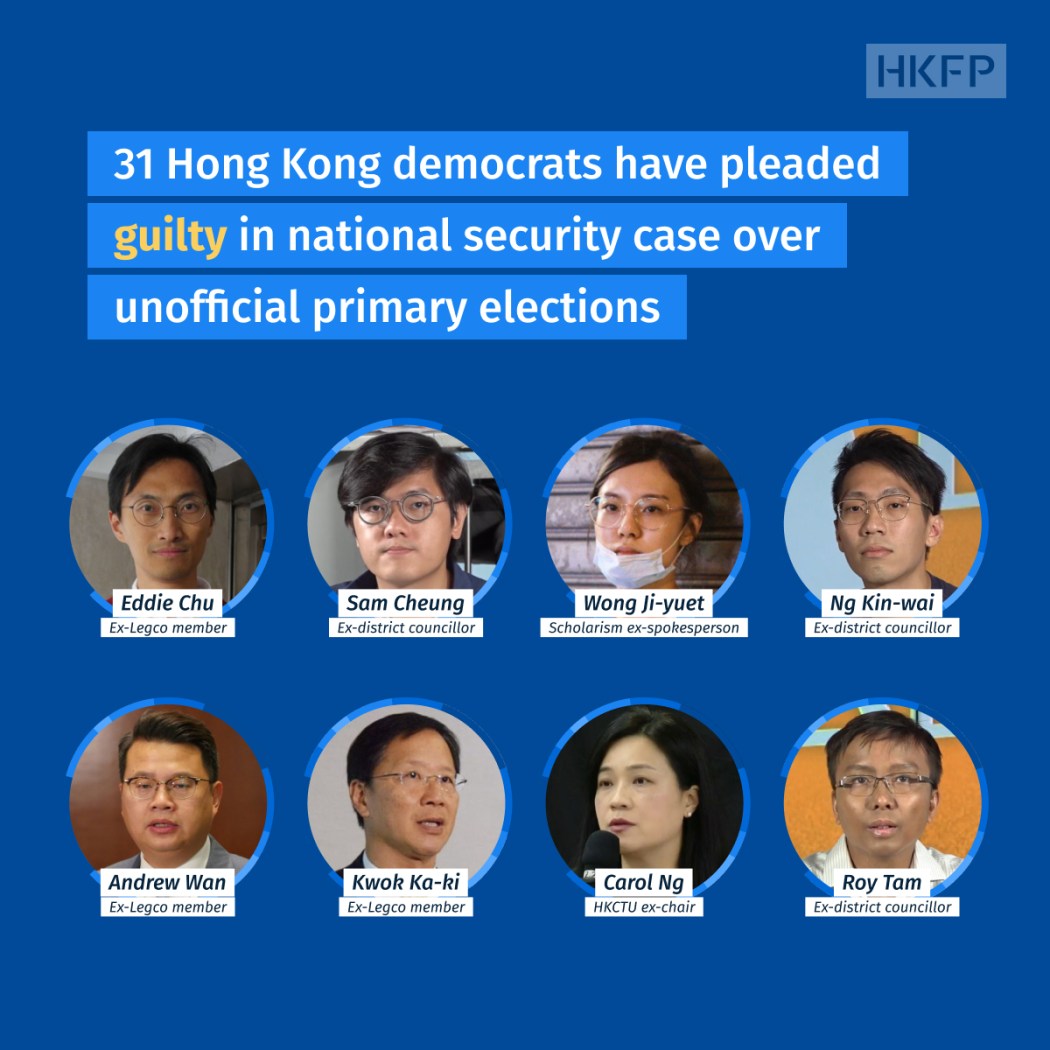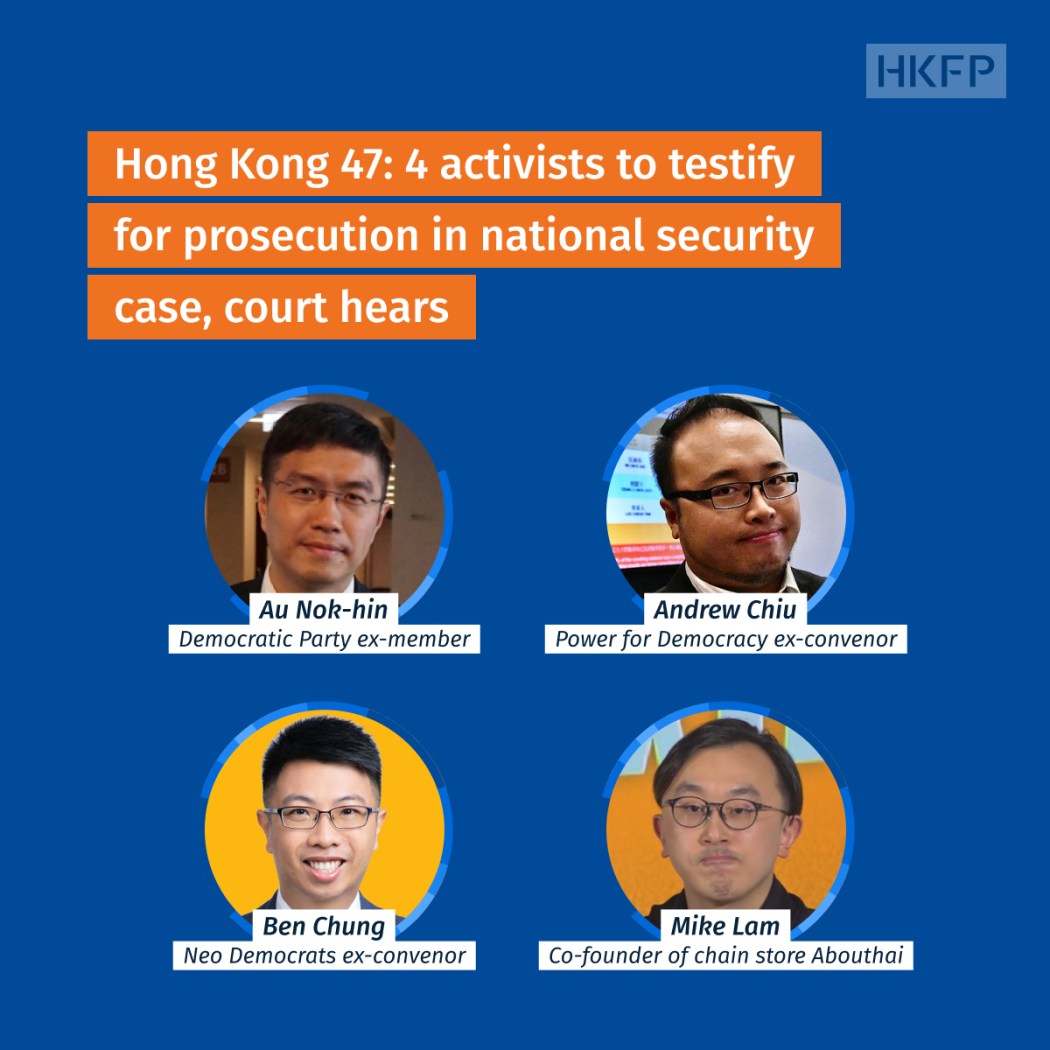Concerns over the idea of using lawmakers’ constitutional powers to vote down government budgets stemmed from reports by pro-establishment media outlets, a former Hong Kong politician has said in his testimony against dozens of democrats in a landmark national security trial.

Former Sai Kung District Council chairman Ben Chung, one of the 47 defendants charged with conspiracy to commit subversion, told the court on Friday that he was worried the authorities would bar all pro-democracy candidates from standing in a legislative race that was originally scheduled for September 2020.
His concerns were fuelled by pro-establishment media outlets, which reported that the election hopefuls could face disqualification if they sought to indiscriminately veto annual budgets submitted by the government after they were elected to the legislature, the 34-year-old said.
Friday marked the 53rd day in which 16 well-known politicians and activists faced a no-jury trial with handpicked judges under the Beijing-imposed national security law. The alleged conspiracy revolves around an unofficial primary poll held in July 2022, which aimed to help the opposition camp seize majority control of the Legislative Council.
Together with Chung, and 30 other defendants who pleaded guilty earlier, the democrats on trial were said to have intended to abuse their powers as lawmakers. The ultimate goal was to paralyse government operations and force the city’s leader to step down, prosecutors alleged. They face up to life imprisonment if convicted.
Veto issue
Testifying for the prosecution before a panel of three designated judges, Chung said he expressed his concerns relating to the veto issue to legal scholar Benny Tai, the “primary mover” of the unofficial polls, in April 2020.
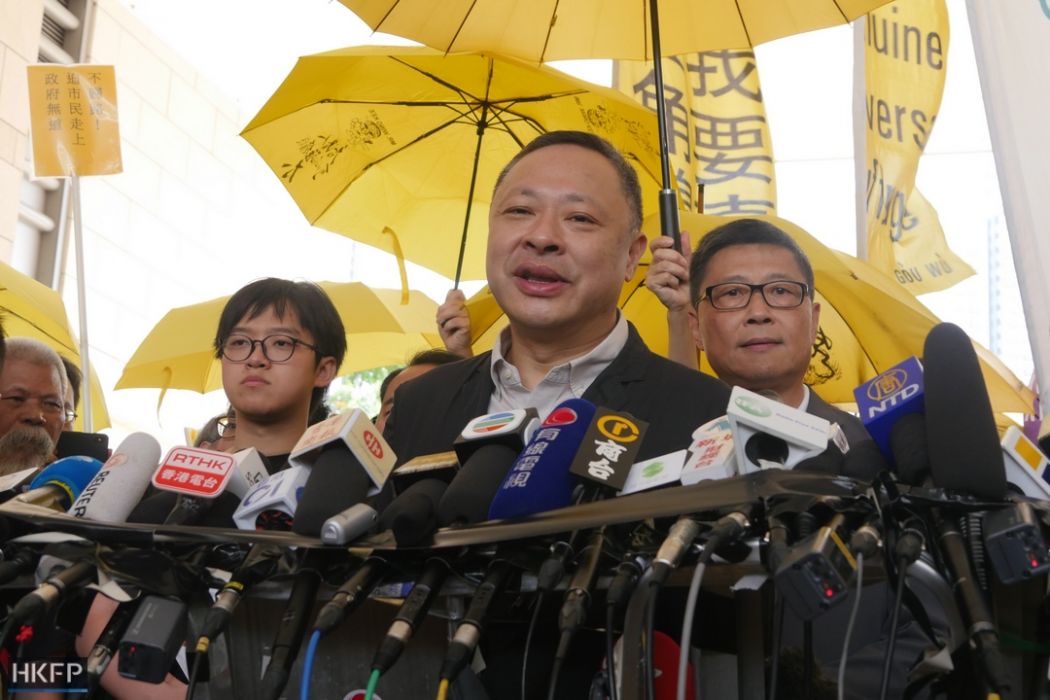
The ex-district council chief who assisted in the hosting of coordination meetings of the New Territories East constituency “pulled Tai to one side” after a meeting in mid-April, 2020, the court heard.
He asked if they could avoid requesting participants of the primary election to vote against the budget if elected, citing the fears of disqualification in the official race, as pointed out by various figures of the pro-establishment camp.
“I will only say ‘actively use the power of the Basic Law.’ If I stated that it was the power under the Basic Law, then there should not be an issue, right?” Chung quoted Tai as saying when he answered questions from prosecutor Andy Lo.
The prosecution concluded their questioning of Chung before lunch on Friday, after he was first called to the stand the day before. The duration of questioning was significantly shorter than that of the two other accomplice witnesses, former lawmaker Au Nok-hin and ex-district councillor Andrew Chiu, whose testimony and cross-examination lasted for weeks.
High Court Judge Andrew Chan said at the beginning of Friday’s hearing that the original estimated length of the prosecution’s case was 55 days. He reminded the prosecutors to “[get] straight to the point,” adding that the defence counsels were “not putting anything down on their notebook.”
On Friday, the defence began to cross-examine Chung, who was also the vice-convenor of Power for Democracy (PfD), a now-defunct political group that helped executive the primary election.
Representing journalist-turned activist Gwyneth Ho, barrister Trevor Beel asked what Chung’s reasoning was behind his concerns over the veto issue. The panel of judges also posed questions as to why Chung was worried after reading reports by pro-establishment media.
“The media can say a lot of things… there are many [cases of] disinformation,” judge Andrew Chan remarked.
In response, Chung explained that he believed such reports reflected the views of the Chinese authorities. What was covered by pro-establishment outlets “often came true, unfortunately,” he said.
“I simply believed that for pro-establishment media to report on these rumours, to a certain extent, it also represented what the central authorities were thinking. After the social incident in 2019, the Central Government would not budge when it comes to its policies for Hong Kong,” Chung said, adding he believed the risks of disqualification must be addressed.
Chung will continue to face cross-examination by Beel next Monday morning.
In June 2020, Beijing inserted national security legislation directly into Hong Kong’s mini-constitution – bypassing the local legislature – following a year of pro-democracy protests and unrest. It criminalised subversion, secession, collusion with foreign forces and terrorist acts, which were broadly defined to include disruption to transport and other infrastructure. The move gave police sweeping new powers, alarming democrats, civil society groups and trade partners, as such laws have been used broadly to silence and punish dissidents in China. However, the authorities say it has restored stability and peace to the city.
Support HKFP | Policies & Ethics | Error/typo? | Contact Us | Newsletter | Transparency & Annual Report | Apps
Help safeguard press freedom & keep HKFP free for all readers by supporting our team


